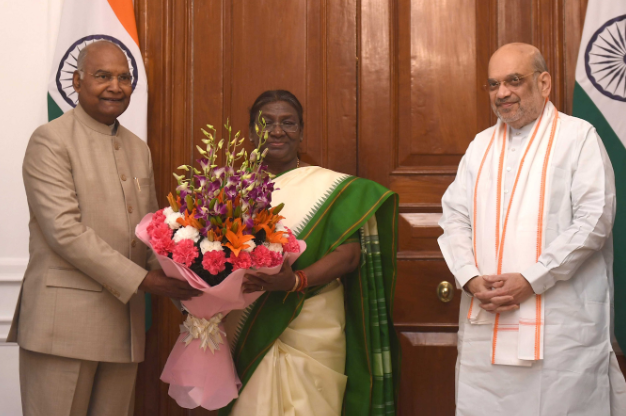
On 12 December 2024, the Union Cabinet approved the ‘One Nation, One Election’(ONOE) bill. The bill aims to hold multiple elections across the country simultaneously. According to various sources, the Bill will likely be tabled in parliament this week. It means Lok Sabha and State assembly elections will be conducted at the same time, followed by local body elections within 100 days of the same. On 12 December 2024, the Union Cabinet approved the ‘One Nation, One Election’(ONOE) bill, which aims to hold multiple elections across the country simultaneously. According to various sources, the Bill will likely be tabled in parliament next week. It means Lok Sabha and State assembly elections will be conducted at the same time, followed by local body elections within 100 days of the same. Currently, the polls are conducted separately, with the state assemblies and the Lok Sabha following their electoral schedules. This staggered system results in a near-continuous election cycle, with over five elections held in 2024 alone. \ Along with the Constitutional (129th Amendment) Bill, 2024 about having simultaneous Lok Sabha and state assembly elections, The Union Territories Laws (Amendment) Bill, 2024 was also approved by the Union Cabinet, which will align the election schedules of Union Territories with “One Nation, One Election”. A committee headed by former President Ram Nath Kovind was set up on 2 September 2023 to look into this initiative. The committee’s findings pointed out that multiple and prolonged elections lead to administrative issues and affect the government's abilities in decision-making. After further scrutiny, they pointed out that ONOE would lead to more consistent policies, which would drastically reduce the cost of elections and encourage greater participation in voting. The Bill will face several legal challenges with 18 amendments to existing laws, including 15 amendments to the Constitution, which fundamentally does not allow simultaneous elections. Additionally, at least five articles and the 1951 representation of the People’s Act would need to be amended. For a Constitutional amendment to be passed, two-thirds of the members must be present, and voting must approve it. Moreover, as it concerns state elections, it needs to be ratified by half of the states in India through resolutions in their assemblies. Therefore, the parliament and the state assemblies need to give a green flag to implement this bill successfully. However, the opposition, on the other hand, has strongly opposed this bill. West Bengal CM Mamta Banerjee has also slammed the centre, calling the bill an “authoritarian imposition”. Meanwhile, DMK leader and Tamil Nadu Chief Minister, M.K Stalin, called this “draconian”. According to the Kovind panel, 62 parties were approached regarding the bill, of which 47 responded. Amongst them, 32 parties were in favour of simultaneous elections, whereas 15 opposed it. A few prominent parties that favoured the initiative were BJP, BJD, JD(U), Shiv Sena, Akali Dal and AIADMK. Those against included the INC, DMK, AAP, TMC and Samajwadi Party. It has been noted that the parties tend to change their stance depending on their alliance. One of the biggest hurdles other than the legal challenges for this bill will be the synchronisation of Lok Sabha and all the State polls. There still seems to be uncertainty over what would happen if there were breaks due to the dissolution of assemblies, hung assemblies, or even a president's rule. If any of these were to happen, the state would again have to go into the elections earlier, thereby affecting the entire sync. Previously, India’s first-ever election was conducted in 1951, followed the ONOE pattern, followed by 1956 and 1961. After breaking the cycle in 1967, the Election Commission in 1983 urged to go back to the ONOE format, but it was neglected. In 2003, former Prime Minister Atal Bihari Vajpayee again initiated Congress President Sonia Gandhi for ONOE. Again, in 2010, Lal Krishna Advani proposed the idea of ONOE to former Prime Minister Manmohan Singh. ONOE resurfaced multiple times after the Modi-led BJP government came into power in 2014. It was also a part of BJP’s manifesto for the 2024 Lok Sabha Elections. After years of discussions and proposals, the Union Cabinet finally approved the ‘One Nation, One Election’ concept, which is expected to be introduced in the ongoing Parliament Winter Session.
Left: Former president Ram Nath Kovind, Centre: President Draupadi Murmu, Right: Home Minister Amit Shah. Ram Nath Kovind Submitted the ONOE report to the president in March 2024 || Source - https://x.com/rashtrapatibhvn/status/1768163884009992678
12 Dec 2024
Janak Joshi